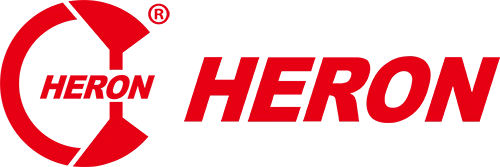As car designs evolve toward lightweighting, electrification, and enhanced safety, top-tier weld quality has become a non-negotiable standard for OEMs and suppliers. A high-performance automotive welder ensures nuts, studs, and key components are joined securely—strengthening every chassis, body, and structure while driving down defects and reworks.
Automotive Industry Challenges: The Limits of Legacy Welders
Suppliers face mounting complexity: hot-stamped, coated, and ultra-thin steels require precise welding that traditional AC machines struggle to deliver. Common pain points include:
-
High defect rates and unreliable nut welds
-
Frequent re-tapping and patch welding causing unnecessary delays
-
Excessive power consumption and high operating costs
Quality gaps not only risk safety and compliance but also undermine profitability and brand trust.
Heron’s Solution: Advanced Medium Frequency DC (MFDC) Automotive Welders
Heron's MFDC automotive welders directly solve legacy system issues through:
-
Stable, programmable current and voltage for diverse material stacks
-
Consistent weld strength and appearance, minimizing heat-affected zones
-
Lower reject rate and improved productivity—fewer patch welds, less rework, no frequent downtime
-
Automated, flexible operation for line integration and rapid job changes
-
Eco-efficient performance for energy and cost savings meeting sustainability goals
Industry Applications and Proven Results
From nut and stud joining in chassis frames to assembling crash zones and battery trays, Heron’s automotive welders elevate quality and throughput across all major vehicle assemblies. Tier 1 suppliers using MFDC technology report dramatic reductions in energy costs, improved yield, and cleaner welds—while easily meeting safety and appearance standards.
Economic, Social & Environmental Impact
-
Economic: Consistent joint quality lowers costs and boosts output
-
Social: Less patch work frees labor for higher-value tasks, safer jobs
-
Environmental: Significantly reduced power usage enables greener manufacturing operations
Troubleshooting Common Automotive Welding Challenges
1. Inconsistent Weld Strength or Appearance
-
Clean and align electrodes before every job
-
Calibrate power settings, especially for new material lots
-
Inspect part surfaces and use precise clamps for repeatable setup
2. High Defect or Reject Rates
-
Adopt MFDC control for stable penetration and joint consistency
-
Use real-time quality monitoring and operator retraining as needed
3. Downtime and Maintenance Bottlenecks
-
Schedule regular checks on sensors, electrodes, and moving parts
-
Use modular machine designs for quick repair and tool changes
Why Choose Heron’s Automotive Welder?
Heron blends deep automotive industry expertise, advanced R&D, and international service support to deliver welders tailored for fast-evolving vehicle production. Their solutions empower customers to meet global standards and future-proof their assembly lines for new materials, automation, and sustainability requirements.
Conclusion: Unlock Higher Productivity and Safety in Vehicle Welding
Upgrade your factory’s weld quality, efficiency, and output with a Heron automotive welder. Ensure every vehicle is built strong, fast, and to the highest global standards.
Strengthen your assembly lines with a Heron automotive welder—optimized for modern car materials, quality, and production efficiency. Explore technology, troubleshooting, and supplier benefits for vehicle manufacturing leaders.



